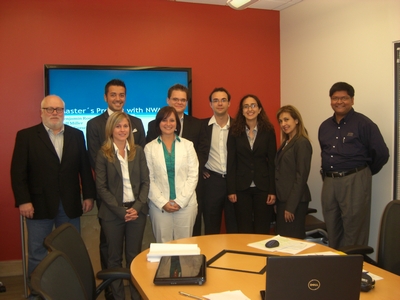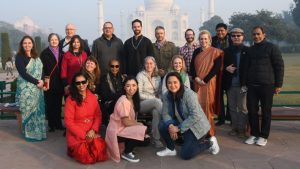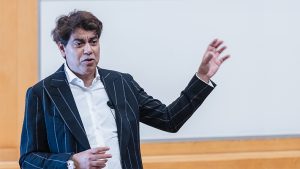How do angel investors and venture capitalists make the decision about investing in a new venture? How do they determine if the company they are betting on is worth $7 million, $25 million or $100 million?
The “art” of due-diligence fascinates me. I call it an art, because as much as we apply sound financial principles and technology assessment processes, at the end of the day, there’s a “gut-feeling” approach to writing the hefty (typically about half-million-dollar) check that new firms seek to help them grow.

The iEntrepreneurship Lab project is one of the activities I launched last year at Florida International University (FIU) as part our new Pino Center for Global Entrepreneurship strategy. It’s one of several practical hands-on graduate projects, run by different faculty members, that are required for the Master of International Business (MIB) degree at the College of Business Administration. I run my projects in collaboration with two investors from New World Angels, a group of private investors that provides equity capital to early-stage companies in South Florida.
In the spring semester, NWA principals Ricardo Weisz and Jack Karabees helped me lead a group of six students through the exciting due-diligence process.
The purpose of the collaboration was to have students get a true taste of venture capital work by assisting in the initial due-diligence analysis of actual firms seeking investment from NWA. They used the same standardized technical process to analyze three very different companies. One develops innovations in magnetic technology for application in different market sectors, another develops innovative consumer technologies for the global skin care market and a third develops innovative products for testing the platelet levels in blood.
By combining analytical work with an insight into the “gut-feeling” approach, the group got a sense of why venture capital work has drawn in so many of our generation’s best and brightest minds. They enjoyed learning about the technical underpinnings of the innovations. In addition, they got a first-hand look at the role that “angels” play in giving opportunities to entrepreneurs.
While the process was brand-new to some of the students—“I had never heard of angels before,” said Italy’s Mario Micoli—they learned with enthusiasm and came back with solid ideas. I was impressed with the great advice we got from these young minds. Who knows—some day, it may be their companies that are seeking out an “angel.”
View all articles by Irma Becerra-Fernandez.




